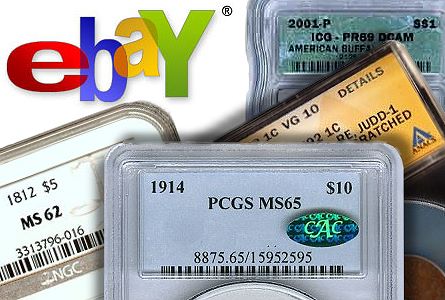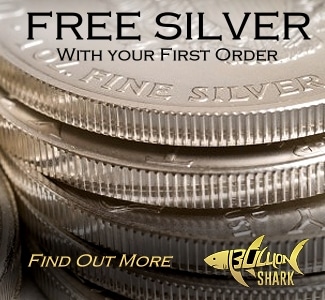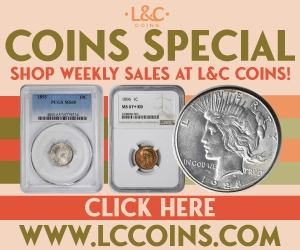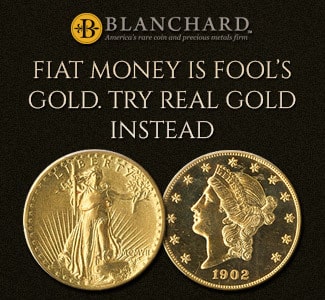by Louis Golino for CoinWeek
There is a consensus among coin collectors and numismatists that it is important that e-Bay have policies designed to protect buyers from overgraded, counterfeit and otherwise problematic coins. Sales of such coins have been an ongoing problem for years, especially on online auction platforms.
But the new e-Bay policies announced on April 17 during the PNG meeting at the Central States Numismatic Society have produced anything but a consensus.
Some dealers are pleased with the new policies and some collectors think they offer useful protections for buyers. But other people such as smaller e-Bay sellers and collectors view them as potentially problematic because of how they see the likely consequences of the new rules.
 It reminds some people of the e-Bay rule instituted earlier in the year that prevents any replica coins from being sold on e-Bay, even if they are clearly marked “replica” on the coin. A lot of people felt that effort went too far despite its positive intention.
It reminds some people of the e-Bay rule instituted earlier in the year that prevents any replica coins from being sold on e-Bay, even if they are clearly marked “replica” on the coin. A lot of people felt that effort went too far despite its positive intention.
A lot of criticism is focused on the fact that not for the first time, e-Bay is enacting policies which appear to suggest that coins graded by the two leading grading companies will be privileged over those graded by other companies. However, that may not actually turn out to be accurate as explained below.
Several news accounts, including those published on April 18 in Coin World and elsewhere have stated that according to e-Bay, only PCGS and NGC currently meet the new requirements for grading companies, but that may change soon.
The apparent exclusion of NCS, which is NGC’s Numismatic Conservation Service, has struck many people as strange since NCS conserves coins and does not grade them, and because it is part of one of the two companies which have been given the e-Bay seal of approval.
ANACS
On its surface, the new provisions seemed to exclude coins from other grading compaines, such as ANACS, which is the oldest grading company and formerly the official grading company of the ANA , as well as ICG. Collectors and dealers are divided on whether coins graded by those companies are as accurately graded as those from the top two companies, but the marketplace does tend to value coins from the top two more highly.
Paul DeFelice, ANACS’ Vice President of Customer Relations and Marketing, stated in an online press release that at the moment his company meets all the new requirements with the exception of one technicality that is in the process of being addressed.
That is a reference to the specification for an online verification tool for certification numbers, which ANACS is in the process of preparing for inclusion on its web site. Mr. DeFelice said that he is confident that this will be completed by the May 30 e-Bay deadline.
ICG also issued a statement on its web site which indicates that it expects to be in full compliance with all the e-Bay grading company requirements by the May 30 deadline.
Many collectors have noted that the online verification service is by no means full-proof since dishonest coin sellers use real certification numbers. In addition, counterfeit slabs are an increasing problem. The use of holograms helps, but it can be very difficult in some cases to determine if a slab is real or not, no matter what the label.
PNG role
According to published reports, John Albanese, a top coin industry leader, PNG member , and president of the Certified Acceptance Corporation, or CAC, was the principal numismatist who advised e-Bay on the crafting of the new policies. CAC only accepts coins graded by PCGS and NGC for submission.
But other members of the PNG besides Mr. Albanese were also part of the process which lead to the creation of the new e-Bay policies. One of them is Vic Bozarth of Bozarth Numismatics , a PNG dealer who also writes for CoinWeek.
Mr. Bozarth said “Ebay approached the PNG last year in regard to questions about making their system better for both buyer and seller. We were told that Ebay approached the PNG because (statistically) they had less problem issues with the PNG dealers using Ebay than other dealers.” Mr. Bozarth stressed that the decision to implement the policies rest solely with e-Bay.
In addition, the new auction listing policies, if they do ultimately still manage to exclude coins graded by ANACS, will substantially increase the already huge market share of PCGS and NGC.
Most collectors and dealers do buy PCGS and NGC coins over those graded by other companies like ANACS and ICG, but most people feel it should be up to the buyer to decide which company’s slabs they want to buy when purchasing coins on e-Bay or elsewhere.
In addition, some people have noted that e-Bay should have given ANACS some advance notice about the new policies rather than informing the company at the same time it made the policies public.
One collector writing in an online coin blog made an interesting suggestion, which is that e-Bay should allow only those grading companies whose slabs are listed on the Greysheet , which includes ICG and ANACS as well as the big two and some smaller companies. He also noted that coins from ICG and ANACS have been moving up in their rankings on the Greysheet, which tracks the percentage of coins traded from each service.
John Maben
John Maben, owner of Modern Coin Mart , wrote on the PCGS discussion board on April 18 that e-Bay is entitled to form partnerships with whatever companies it chooses to, and that it is going to be an uphill battle for ANACS to be meet the new criteria. He added that PCGS and NGC have more employees and market share than companies like ANACS and ICG. Mr. Maben only sells coins graded by NGC and PCGS plus some in original packaging, and he does a lot of business on e-Bay.
Mr. Maben told CoinWeek that “The intent, I think, is to protect new buyers. The biggest issue I personally see with ANACS and ICG is that they are not as liquid in general nor do the coins command the same prices in general. The argument against that will be that some will buy them and pay strong prices.”
He added that “I am for free market trading, but e-Bay has the right to make its rules regardless of if everyone else is in agreement.”
While designed to facilitate coin selling and buying, the new policies could instead, in the view of some people, end up inhibiting legitimate coin transactions, and they may have the effect of shifting a lot of e-Bay’s coin business onto other auction platforms such as Teletrade, Heritage Auctions, and Great Collections. These other platforms allow coins graded by companies besides PCGS and NGC to be sold, although they represent a smaller number than coins graded by the top two companies.
In addition, the e-mail which e-Bay sent to sellers announcing the new policies includes this provision: “for U.S. coins only, grading by companies meeting these standards will now be required for all coins with a Buy It Now, reserve, or start price of $2,500 and above.”
The provision that such coins only be sold if they are first graded by one of the approved companies seems problematic to a lot of people because many modern Mint coins are valued above that amount and are often sold ungraded. Coins still in their OGP, or original government packaging, are a staple of e-Bay coin sales, and there is a growing preference for OGP coins among buyers and sellers. Many coin dealers and collectors even prefer OGP coins to those graded MS70 by PCGS and NGC.
Some of the types of coins that would be an issue include the 2009 Ultra High Relief double eagle and the 2008-W proof and uncirculated Buffalo $50 coins, all of which are worth more than $2500 in OGP.
Mr. Maben said: “The policies are still very unclear to me as they are not well defined, can be interpreted various ways, and could very well still change as e-Bay receives feedback from it’s members.” He also said he applauds e-Bay for its efforts to protect coin buyers.
On the issue of coins valued over $2500 having to be graded to be sold on e-Bay, Mr. Maben said he was not yet certain how the new policy would work and added that he disagreed with the current e-Bay policy which says the OGP materials can not be sold with out the coin. Mr. Maben has a company called OGP World that sells only government packaging for modern Mint coins. Those items are presumably left over from all the coins he has graded to be sold at Modern Coin Mart and on e-Bay.
On this issue, Mr. Bozarth noted that “My understanding is that Ebay feels it owes their buyers a minimum of customer protection. The problem with modern issues is that they could potentially be counterfeited just like any other numismatic item. The new rules will limit the liability (and yes potential damage) that might occur with a ‘bogus’ item-whether that item is counterfeit or overgraded.”
John Albanese
John Albanese, the president of CAC who advised e-Bay on the new policies, was also contacted for this story. Asked about whether he knows who else helped e-Bay craft the new policies such as other PNG dealers or the American Numismatic Association, he said he really did not know and therefore could not comment.
He did state that he “favors standards for grading services” and mentioned the example of an appraisal he just did through his work to protect consumers from coin fraud. A collector spent a total of $60,000 on coins graded by a company with the acronym NCG, which Mr. Albanese said has no web site and that he has never heard of, and that is obviously intended to sound similar to NGC. He said that when he appraised those coins, the $60,000 investment turned out to be worth only $10,000.
Mr. Albanese founded the Numismatic Consumer Alliance to educate and protect coin consumers.
One coin that the buyer of the NCG coins paid $4700 for turned out to vastly overgraded and worth only $70. He noted that with all the billions of dollars spent on graded coins, this “is serious business” and that “the grading companies should be held to high standards.” He also mentioned that he was “not trying to hurt ANACS or ICG” and that “it’s a positive if they can meet the requirements [of the new e-Bay policies].”
Finally, on the matter of modern coins worth over $2500 being required to be graded by an approved company, Mr. Albanese said that because his company focuses on classic American coins, he is “not really in tune with modern coins” and that he would ask e-Bay about this specific provision.
 Louis Golino is a coin collector and numismatic writer, whose articles on coins have appeared in Coin World, Numismatic News, and a number of different coin web sites. His column for CoinWeek, “The Coin Analyst,” covers U.S. and world coins and precious metals. He collects U.S. and European coins and is a member of the ANA, PCGS, NGC, and CAC. He has also worked for the U.S. Library of Congress and has been a syndicated columnist and news analyst on international affairs for a wide variety of newspapers and web sites.
Louis Golino is a coin collector and numismatic writer, whose articles on coins have appeared in Coin World, Numismatic News, and a number of different coin web sites. His column for CoinWeek, “The Coin Analyst,” covers U.S. and world coins and precious metals. He collects U.S. and European coins and is a member of the ANA, PCGS, NGC, and CAC. He has also worked for the U.S. Library of Congress and has been a syndicated columnist and news analyst on international affairs for a wide variety of newspapers and web sites.





Hi Louis,
Glad to see such in-depth treatment of this important topic.
A lot of my concerns about eBay judging the validity of the third party graders have been put to rest by the inclusion of ANACS and even ICG. When this story initially broke, it seemed as though neither grader would be included.
What continues to trouble me is the “$2500 rule.” I don’t think eBay should be blocking the sales of valuable ungraded coins. Should the price of gold or platinum increase, it is possible there would be issues with the sale of proof gold coins or, as you mentioned, the UHR double eagle. I would like to see eBay just dismiss this rule or modify it in some way.
I found this to be rather strange aswell..I saw a video of how PCGS grade coins and they held the coins with their bare fingers upon grading the coins…this can not be correct
Thanks for your comments, Captain. It’s still not a done deal as far as ANACS and ICG being included, but the two companies have indicated they expect to meet the new criteria.
As far as buying/saving on eBay in general goes:
If you see an item that you want listed in auction format, send the seller a message asking if they will accept $x to end the auction early and sell the item to you. If that doesn’t work, use a sniping service such as Bidball.com to bid for you. It’ll bid in the last few seconds, helping to save $ and avoid shill bidding.
If there is a particular item that you want that is relatively rare on eBay or goes fast when one is listed, use ebuyersedge.com to set up a saved eBay search for it. You’d get an e-mail whenever a match is listed. You can use the price, category, exclude word, etc. filters to narrow down the results that you get in the e-mails. Excellent for “Buy It Now”s priced right.
If the item that you’re looking for is difficult to spell, try a misspelling search site like Typojoe.com to find some deals with items that have main keywords misspelled in the title. Other interested buyers may never see them.
Thanks for the tips, Robert.
“replica coins” ?
But if the content is silver and it was sold for at the not too extravagant premium to spot then what’s the problem ?
“the marketplace does tend to value coins from the top two more highly.”
The marketplace is already working properly so you have to wonder if the monopolists are playing a long game to destroy their competition.
“president of the Certified Acceptance Corporation, or CAC, was the principal numismatist who advised e-Bay on the crafting of the new policies. CAC only accepts coins graded by PCGS and NGC for submission.”
Can anyone see that we may have a monopoly forming ?
“He added that “I am for free market trading, but e-Bay has the right to make its rules regardless of if everyone else is in agreement.””
If buyers or sellers don’t like this e-Bay policy then there other auction sites who might have policies they do like.
FYI-
On May 21 E-Bay sent out a new e-mail that says ICG and ANACS are now approved services. It also addresses the $2500 issue and has some exclusions, but it does not include the types of coins I identified in my article, so, the 2009 UHR, for example, can no longer be sold raw in OGP on e-Bay.
Here the text, as supplied by some from the PCGS message boards:
“Just a quick reminder that a few changes will take effect on May 31 that are designed to improve buyer confidence and sales in the Coins category. We also want to notify you that since we announced these changes in April, two more companies have met our standards for grading coins-giving you more companies to choose from.
Update your Coins listings now to comply with the new policy.
Starting on May 31, only listings for coins that have been graded by one of the following companies may include a numeric grade in their listing title or item description:
• Numismatic Guaranty Corporation (NGC)
• Professional Coin Grading Service (PCGS)
• American Numismatic Association Certification Services (ANACS)
• Independent Coin Graders (ICG)
Coins that haven’t been graded by one of these companies will be considered raw.
Also, whenever you list or relist a single coin within the Coins:US category with a Buy It Now, reserve or start price of $2,500 or more, you are required to have your item graded by one of these companies. Good ‘Til Cancelled listings will have to comply with the new policy starting on June 30. Bullion, collections, mixed lots, and sets of coins are excluded from this requirement.
Listings that don’t comply by these dates will be ineligible for relist or renewal and will be removed.
Including a numeric grade from companies who have met eBay’s stringent standards will help assure buyers that your listings accurately represent the high quality of your coins. Take action now to ensure your listings remain available and competitive on the eBay marketplace.
Have a great day and thank you for selling on eBay!
eBay Selling Team”